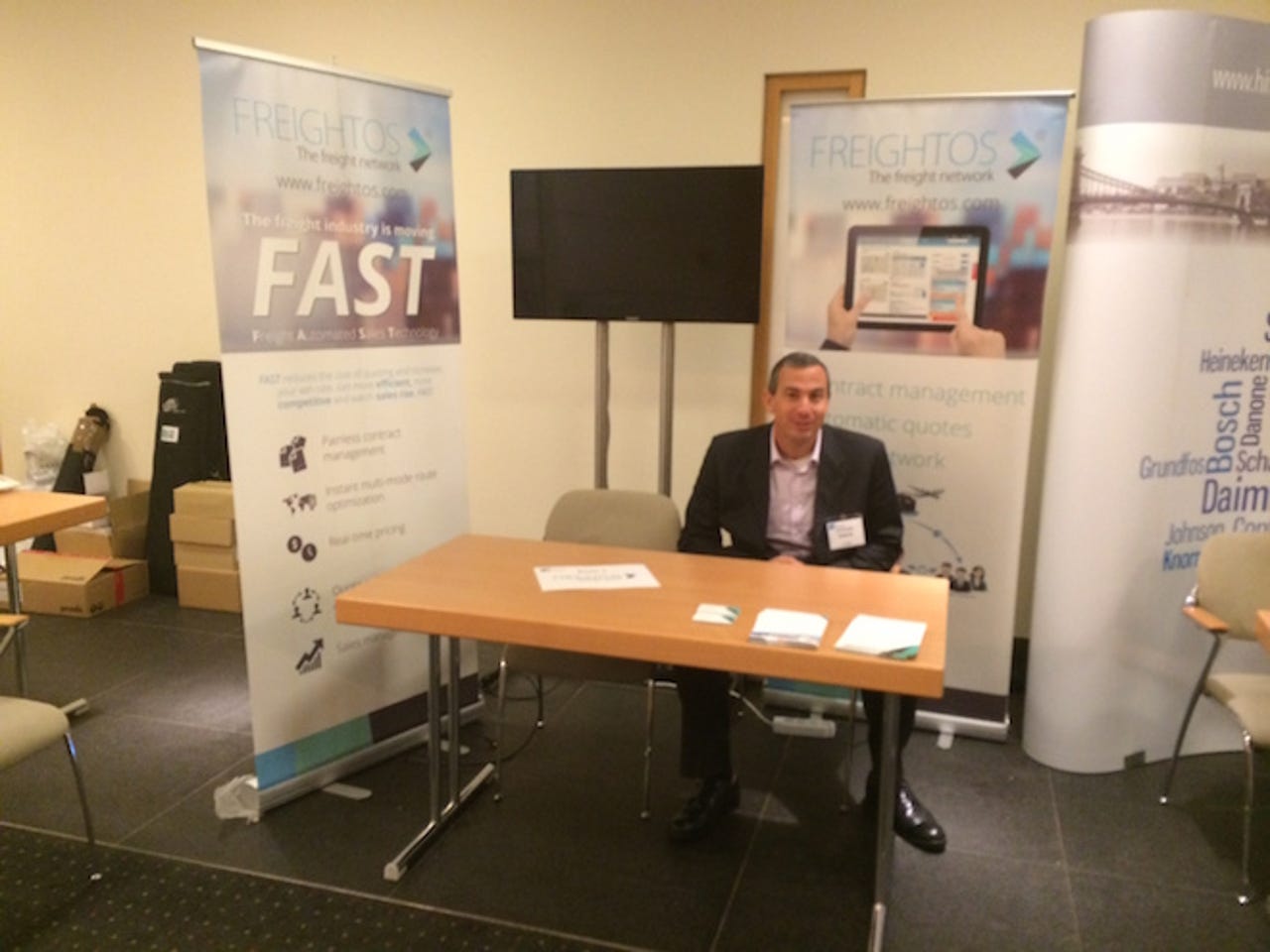International shipping finally gets its big data revolution


One of the few industries where big data has yet to find its toehold is international shipping -- but perhaps not for long. Freightos, an Israeli startup, sees an opportunity here to target its big data-driven product for automatic scheduling and price-setting for cargo.
"It's like Expedia for shipping," said Freightos CEO Zvi Schreiber. "The data to automate this is out there, and we've developed the algorithms to utilize it and reduce the cost of shipping for companies around the world."
The international shipping industry on its own is worth about $4tn annually, data shows - but it actually has a much larger impact on the economy, because shipping costs show up in the manufacturer, wholesale, and retail price of countless products.
Currently, said Schreiber - a serial entrepreneur who has worked in IT for decades - cargo scheduling and especially pricing is done manually. Companies - say, an exporter in China who wants to send clothing to a retailer in New York - will generally call a freight shipping company, which arranges for the cargo to be delivered to port, and searches for a ship that is going in the right direction. It's all usually done via phone and computer, with a freight forwarder using a service like Linescape, which detects where ships are and where they are going, when they are going to get there, and whether there is room onboard.
Based on that information, the freight company will get back to the exporter with a price and schedule - at which point the exporter can give the buyer an estimate on how much shipping will cost, and when (approximately) the merchandise will arrive, taking into consideration, of course, labor costs, seasonal fees, surcharges, weight costs, brokerage and insurance costs, weather issues that could delay the arrival of a ship, etc.
It's all so 20th century, said Schreiber -- and the time has come to apply 21st century technology to shipping. "It's akin to what passenger travel was like just a few years ago," he said, when corporate travel offices and individuals traveling for business or pleasure had to make do with whatever a travel agent offered. Today, the cost of travel for enterprise has fallen, and individuals are free to make their own schedules, thanks to the data crunching of sites like Expedia and Kayak, which take information about flights, prices, empty seats, and all the other relevant data, and returns dozens of offers within seconds of an inquiry.
The thing is, said Schreiber, the data and technology to do the same thing for international shipping exists - except that, until now, no one has come up with the algorithms to crunch the data. "We have," said Schreiber. "Instead of getting a quote after 24 to 48 hours, as most freight shippers require today, we can return a quote and schedule within seconds."
One reason no one has come up with this system before is because there is a lot more data to crunch in freight shipping than in passenger air travel. There are more databases to access and more legacy data that needs to be factored in, including contracts, memorandums of understanding, numerous methods of computing weight/distance/storage costs, and so on.
To make the system work, Freightos has developed a method that allows users to upload contracts and other data to an online reader that can handle the Excel and PDF files shippers and customers usually use. The system also incorporates data from government websites discussing fees, requirements (limitations on the kind of freight that can be shipped to or from a location, for example), and legal issues. It takes into account the criteria of customers (where and when cargo is to be shipped, who takes custody of it when it is delivered, penalties for late delivery, for example); ship location and availability (from the aforementioned Linescape site); weather data; and price schedules from shippers, ship owners, and other data. Because the system has to incorporate many different kinds of databases, Freightos also uses JProfiler, a cloud-based analysis system that extracts data from different format databases and inserts it into a single format, allowing for more efficient analysis.
The result of all this big data crunching: a nearly-instant quote on how much a customer will have to pay for specific shipments, and when the cargo will arrive - with Expedia-like options that allow service buyers to tweak options, such as paying more for faster delivery. Importers and exporters can use the system themselves to set final prices for a deal, and can even arrange for a shipment on their own - and freight companies can use the service to provide faster and more accurate quotes to their customers.
Both groups are using Freightos, said Schreiber. "We are working with some of the biggest retailers and manufacturers in a number of industries, as well as with large international shipping companies," he said, though he declined to name names. Already the customers who are using the service have saved "significant amounts of time and money, which is a huge thing for enterprise, as well as small and medium-sized businesses. We have customers in all those sectors," he said.